BUSINESS IN RUSSIA:
TO UNDERSTAND AND SURVIVE
TO UNDERSTAND AND SURVIVE
SIBERIAN SUMMER SCHOOL
1–15 AUGUST 2022
NOVOSIBIRSK
RUSSIA
1–15 AUGUST 2022
NOVOSIBIRSK
RUSSIA
Ask a Question
Feel free to write us
About the course
The main idea of the Summer School "Business in Russia: To Understand and Survive" is not to focus solely on strategic and managerial issues, but to introduce students to the wider cultural, economic, communicational and legal contexts of doing business in Russia.
Being held in the capital city of Siberia – Novosibirsk – the school also introduces students to the cultural and economic specifics of Siberia – a region that has always attracted foreign travelers with its magnificent nature and dramatic history of exploration.
To do so, the School program combines lectures on the post-soviet Russian economy, economic diversity in the Russian regions and legal aspects of doing business in Russia with interactive modules on Russian national culture, mentality, communication and negotiation style, and the Russian approach to management and leadership.
To familiarize students with the cultural and economic specifics of Siberia, the school incorporates seminars on Siberian regional identity and culture and lectures on the economy of the Siberian region. Participants will take part in round-tables with Siberian businessmen, have master classes on the first steps to organizing a business in Russia, and work on individual and group projects.
The cultural program includes a variety of activities in the city of Novosibirsk and its suburbs including a City tour, museums, and a barbeque at the beach. There is also a three-day tour to Altai with its spectacular mountain views, waterfalls, and outdoor activities including rafting and horseback riding. There is an optional two day tour to Tomsk, one of the oldest cities in Siberia.
The school is open to a wide range of applicants from BA, MA, and PhD students in business, management, social sciences, humanities, engineering, and the natural sciences to mid-career specialists and businessmen interested in studying the Russian and Siberian business and cultural environment.
Being held in the capital city of Siberia – Novosibirsk – the school also introduces students to the cultural and economic specifics of Siberia – a region that has always attracted foreign travelers with its magnificent nature and dramatic history of exploration.
To do so, the School program combines lectures on the post-soviet Russian economy, economic diversity in the Russian regions and legal aspects of doing business in Russia with interactive modules on Russian national culture, mentality, communication and negotiation style, and the Russian approach to management and leadership.
To familiarize students with the cultural and economic specifics of Siberia, the school incorporates seminars on Siberian regional identity and culture and lectures on the economy of the Siberian region. Participants will take part in round-tables with Siberian businessmen, have master classes on the first steps to organizing a business in Russia, and work on individual and group projects.
The cultural program includes a variety of activities in the city of Novosibirsk and its suburbs including a City tour, museums, and a barbeque at the beach. There is also a three-day tour to Altai with its spectacular mountain views, waterfalls, and outdoor activities including rafting and horseback riding. There is an optional two day tour to Tomsk, one of the oldest cities in Siberia.
The school is open to a wide range of applicants from BA, MA, and PhD students in business, management, social sciences, humanities, engineering, and the natural sciences to mid-career specialists and businessmen interested in studying the Russian and Siberian business and cultural environment.
-1-
Cultural context as the most elusive aspect of doing business
-2-
National culture in business: approaches and models
-3-
National mentality: how Russians think? Language, history, religion and other factors affecting Russian mentality
-4-
Russian style of management and leadership: moving slowly, getting fast
-5-
"Are you crazy?" How to be understood in Russia: communicative habits, negotiations, advertising, PR&GR
-6-
Russian culture as a patchwork: the same culture for a huge territory?
-7-
To be Siberian: are there strong identities outside of Moscow?
-8-
Russian economy. Is it easier than Russian culture?
-9-
National economy in post-Soviet times
-10-
Russian economy as a patchwork: how different are the Russian regions?
-11-
Legal aspects of doing business in Russia: how to stay alive in a bureaucratic quest?
Application requirements
- Undergraduates and postgraduates students from any institutions worldwide
- Readiness to penetrate the cultural, social and economic dimensions of business and its environment
- English level Upper Intermediate or higher is sufficient
final assessment
In the end of the course students will have a take-home examination:
an argumentative essay with a maximum length of 5-6 pages
an argumentative essay with a maximum length of 5-6 pages
Important dates
February 1
Application Start
June 15
Application Deadline
July 10*
Payment Deadline
*For DAAD scholarship students, payment must be received before the beginning of school
*For DAAD scholarship students, payment must be received before the beginning of school
August 1
Program Start
Mandatory fees
APPLICATION AND VISA FEE
Who may apply?
— All students who are currently enrolled at college or university level institutions
— Sufficient English proficiency
— All students who are currently enrolled at college or university level institutions
— Sufficient English proficiency
For all universities
45€
PROGRAM FEE
— Tuition fee
— Study materials
— Cultural activities
— Field trips
— Certificate
Travel, insurance, meals and personal daily expenses should be paid individually
— Study materials
— Cultural activities
— Field trips
— Certificate
Travel, insurance, meals and personal daily expenses should be paid individually
For all universities
600€
Special offers for student groups from partner universities are available
Optional fees
DORMITORY FEE
New dormitories are located within 3 minute walk from the University. Students live in block-type dormitories, a block is composed of one or two rooms, plus a bathroom equipped with a shower and a toilet. Single or double room accommodation is available. A furnished kitchen and a leisure room are located on each floor.
Single Room
70€
Per Course
Shared Room
35€
Per Course
Lecturers
- Alexander BaranovDr., Professor, Head of the Chair of Economic Theory at the Faculty of Economic, Novosibirsk State University, Deputy Director of the Institute of Economics and Industrial Engineering, Siberian Branch, Russian Academy of ScienceField of expertise: macroeconomics, estimation and forecasting of national economy, specialist in Russian economy
Dr., Professor Aleksandr Baranov graduated from the Faculty of Economics of Novosibirsk State University in 1977. He is a Head of the Chair of Economic Theory at the Faculty of Economics of Novosibirsk State University and a Deputy Director of the Institute of Economics and Industrial Engineering, Siberian Branch, Russian Academy of Science. He is the author of more than 160 research papers, monographs and textbooks in the field of macroeconomics, finance, Russian economy, estimation and forecasting of national economy. - Elena LimanovaCandidate of Science (Economics), Associate Professor, Faculty of Economics, Novosibirsk State UniversityField of expertise: economics of the environment and natural resources, corporate culture, Comparative management, corporate social responsibility.
Elena graduated from Novosibirsk State University with a degree in economics (specialist) and got her Candidate of Science degree there at 2006. She also studied at Economic Development Institute of the World Bank (USA), Business school of Stockholm University (Sweden). She took part in international research and educational projects in USA, France, Germany, China, Italy, UK, Hungary. As a Deputy Dean Elena is responsible for Master programs in Management at the Faculty of Economics of NSU, including those taught in English. - Eugenia KolomakDoctor of Science, (Economics), professor, Faculty of Economics, Novosibirsk State University,
Head of the Department of Territorial Systems, Institute of Economics and Industrial Engineering SB Russian Academy of Sciences (RAS)Field of expertise: Spatial Economics; Economics of Federalism; Economics of Regulation; Public Economics.
Evgeniya graduated from Novosibirsk State University with a Master of Economics Degree and completed her post-graduate course at the Institute of Economics and Industrial Engineering, Siberian Branch of Russian Academy of Sciences. She was a grantee of numerous scientific grants and awards, including those of Fulbright and Central European University. In 2006 she was a winner of the "Best economists of RAS" competition.
Evgeniya is an author of more than 200 publications including the most recent - The Development of Siberia's Post-Soviet Urban System: Predictions and Reality // Problems of Economic Transition, Evolution of Spatial Distribution of Economic Activity in Russia // Regional Research of Russia.
- Alla Anisimovasenior lecturer in Sociology, Faculty of Economics, Novosibirsk State UniversityField of expertise: social identity, cross-cultural management, organizational culture, organizational behavior
Alla Anisimova is a senior lecturer in Sociology, Novosibirsk State University. She has got her MA in Sociology from Central European University (Prague) with accreditation of the University of Lancaster (UK), she completed her post-graduate studies at Graduate School for Social Research (GSSR), Polish Academy of Science (Warsaw, Poland).
Her recent research interests focus on Siberian and Far East regional identities and methodology of identity research. Her most recent publications include: Reading Post -Soviet (Trans)formations of Siberian Identity through Biographical Narrative, Region: Regional Studies of Russia, Eastern Europe, and Central Asia 5(2);127-48, 2016 and Siberian regional identity: Self-perception, solidarity or political claim? In Russia's Regional Identities: the Power of the Provinces, eds. Edith W. Clowes, Gizela Erbsloh, Ani Kokobobo, Routledge, 2018(in collaboration with Olga Echavskaia) and a number of articles on methodology of regional identity analysis, on socio-economic and political origins and implications of Siberian and Far East regional identities. - Alexei IzumovDr., Associate Professor, Faculty of Economics, Novosibirsk State UniversityDr. Izyumov is Associate Professor of Economics at the University of Louisville. A graduate of Moscow State University, he worked at the International Economics unit of the Russian Academy of Sciences consulting for the USSR, the Russian government, and the United Nations. As a business consultant, he helped organize some of the first joint ventures in Russia. Dr. Izyumov taught economics and international relations in Europe, Canada, and the United States. He has conducted lectures and seminars at Harvard, Columbia, MIT, Tufts, Brown, Berkeley, and Stanford. He has published more than sixty academic articles on economics and business and worked as a columnist for Newsweek International 1989 -1997. A contributor to The Washington Post, International Herald Tribune, The Boston Globe, The Christian Science Monitor, Globe and Mail, and Le Figaro, Dr. Izyumov has also appeared on CNN, ABC, NPR, MSNBC, BBC, and other networks. He has worked and/or traveled to more than seventy countries.
- Elizaveta ZainutdinovaPhD candidate and Senior Lecturer, Novosibirsk State University Institute of Philosophy and Law Economics DepartmentField of Expertise: legal regulation of the digital economy, smart contract & blockchain regulation, contract law.
A graduate of Novosibirsk State University with a law degree (bachelor's and master's), Zainutdinova also studied at Purdue University (USA), the Korea Institute of Science and Technology, and the Korea Invention Promotion Association (South Korea). She has conducted research at the Max Planck Institute for Innovation and Competition (Germany) and Saarland University (Germany). Her current research is on smart contracts, their implementation in civil law and application to solving practical cases. She also practices as an IP&IT Lawyer.
Our contacts
Feel free to write and call us
International Student Recruitment Office
1 Pirogova str., Office 2325
Novosibirsk, Russia, 630090
1 Pirogova str., Office 2325
Novosibirsk, Russia, 630090
Like and share


